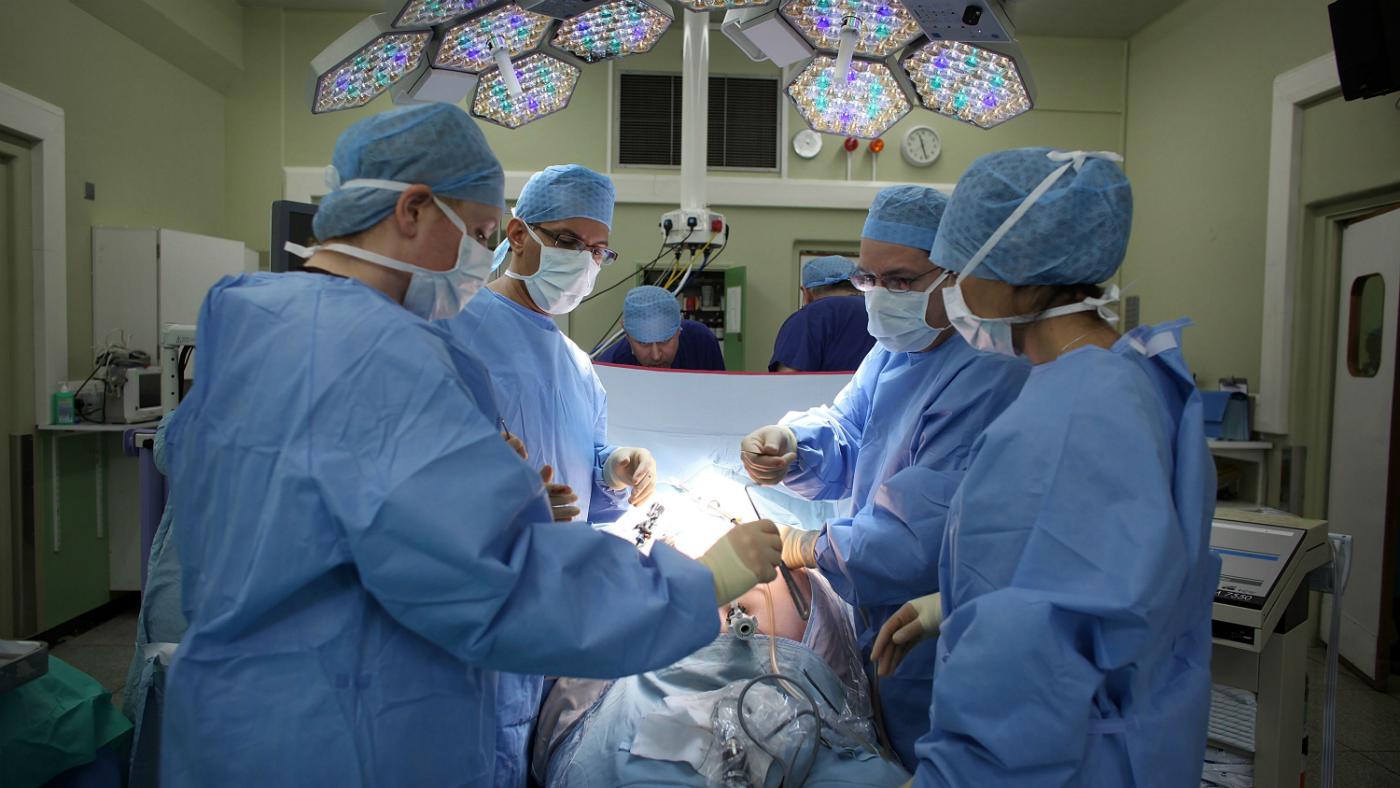Faulty medical implants: who is at risk?
New investigation shows patients worldwide are being harmed as a result of poor regulation and lax testing rules

A free daily email with the biggest news stories of the day – and the best features from TheWeek.com
You are now subscribed
Your newsletter sign-up was successful
Faulty medical implants have caused the deaths of more than 1,000 people in just three years, a global investigation has found.
Between 2015 and 2018, UK regulators alone received 62,000 “adverse incident” reports linked to components including pacemakers, artificial hips, breast implants and contraceptives.
A third of the incidents “had serious repercussions for the patient, and 1,004 resulted in death”, reports The Guardian.
The Week
Escape your echo chamber. Get the facts behind the news, plus analysis from multiple perspectives.

Sign up for The Week's Free Newsletters
From our morning news briefing to a weekly Good News Newsletter, get the best of The Week delivered directly to your inbox.
From our morning news briefing to a weekly Good News Newsletter, get the best of The Week delivered directly to your inbox.
The new research into the dangers associated with the global $400bn (£310bn) industry was conducted by the International Consortium of Investigative Journalists (ICIJ), and involved more than 250 reporters in 36 countries.
The investigation “found a lax system of regulation in Europe that allows companies to ‘shop around’ dozens of safety organisations until one of them approves their product”, says the BBC.
It also found that “doctors can be left in the dark about the true risk of treatments they are recommending to their patients”, the news site adds.
Who has been affected?
A free daily email with the biggest news stories of the day – and the best features from TheWeek.com
The Guardian says that examples of failure in the implant market include “replacement hips and vaginal mesh products sold to hospitals without any clinical trials; patients relying on faulty pacemakers when manufacturers were aware of problems; complications with hernia mesh that ruled one of Britain’s top athletes out of competing for years; and regulators approving spinal disc replacements that later disintegrated and migrated in patients”.
Among the many other instances, patients were given birth control implants that caused internal damage and bleeding; mesh implants for incontinence caused abdominal pain in some patients; and implanted defibrillators were also reported to misfire.
A panel of experts put together by the ICIJ is advising anyone with implants who may be concerned to seek help, adding: “Your first point of call should be the medical team that performed the operation. If you cannot go back to them for whatever reason, you should consult your primary care doctor.
“The doctor should be able to refer you to a specialist who is familiar with the device and the surgery you had.”
What is the medical community saying?
The British Royal College of Surgeons (RCS) is calling for “drastic regulatory changes”. RSC president Professor Derek Alderson said: “All implantable devices should be registered and tracked to monitor efficacy and patient safety in the long-term.”
Meanwhile, MedTech Europe, the body that represents the medical devices industry, said: “Millions of people have safely benefited from medical devices and can now live healthier, more productive and more independent lives.
“Life is unimaginable today without the hundreds of thousands of medical devices in our hospitals and in our homes.”
-
 What to know before filing your own taxes for the first time
What to know before filing your own taxes for the first timethe explainer Tackle this financial milestone with confidence
-
 The biggest box office flops of the 21st century
The biggest box office flops of the 21st centuryin depth Unnecessary remakes and turgid, expensive CGI-fests highlight this list of these most notorious box-office losers
-
 The 10 most infamous abductions in modern history
The 10 most infamous abductions in modern historyin depth The taking of Savannah Guthrie’s mother, Nancy, is the latest in a long string of high-profile kidnappings
-
 Epstein files topple law CEO, roil UK government
Epstein files topple law CEO, roil UK governmentSpeed Read Peter Mandelson, Britain’s former ambassador to the US, is caught up in the scandal
-
 Iran and US prepare to meet after skirmishes
Iran and US prepare to meet after skirmishesSpeed Read The incident comes amid heightened tensions in the Middle East
-
 Israel retrieves final hostage’s body from Gaza
Israel retrieves final hostage’s body from GazaSpeed Read The 24-year-old police officer was killed during the initial Hamas attack
-
 China’s Xi targets top general in growing purge
China’s Xi targets top general in growing purgeSpeed Read Zhang Youxia is being investigated over ‘grave violations’ of the law
-
 Panama and Canada are negotiating over a crucial copper mine
Panama and Canada are negotiating over a crucial copper mineIn the Spotlight Panama is set to make a final decision on the mine this summer
-
 Why Greenland’s natural resources are nearly impossible to mine
Why Greenland’s natural resources are nearly impossible to mineThe Explainer The country’s natural landscape makes the task extremely difficult
-
 Iran cuts internet as protests escalate
Iran cuts internet as protests escalateSpeed Reada Government buildings across the country have been set on fire
-
 US nabs ‘shadow’ tanker claimed by Russia
US nabs ‘shadow’ tanker claimed by RussiaSpeed Read The ship was one of two vessels seized by the US military